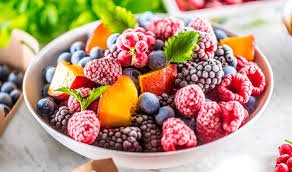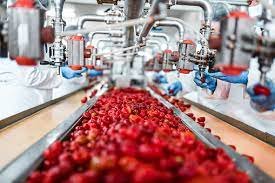Preservation Technician-Fruits and Vegetables

Introduction:
In a world where food security and sustainability are paramount concerns, the preservation of fruits and vegetables stands as a critical aspect of maintaining a stable food supply chain. Preservation technicians play a pivotal role in ensuring that these perishable commodities are stored, processed, and distributed efficiently to meet consumer demands while minimizing waste. This article explores the responsibilities, techniques, and significance of preservation technicians in safeguarding fruits and vegetables.
Understanding Preservation Techniques:
Preservation techniques have evolved over centuries, from traditional methods like drying, salting, and fermenting to modern technologies such as freezing, canning, and vacuum packaging. Each method offers unique advantages in preserving the nutritional content, flavor, and shelf life of fruits and vegetables. Preservation technicians are trained in employing these techniques effectively to maintain the quality and freshness of perishable produce.
- Drying: Drying is one of the oldest preservation methods, involving the removal of moisture from fruits and vegetables to inhibit microbial growth and enzymatic reactions. Preservation technicians utilize various drying techniques, including sun drying, oven drying, and freeze-drying, depending on the specific requirements of the produce. Proper monitoring of temperature, humidity, and airflow is essential to ensure uniform drying and prevent spoilage.
- Canning: Canning involves heating fruits and vegetables to high temperatures to destroy microorganisms and enzymes, followed by sealing them in airtight containers to prevent contamination. Preservation technicians adhere to strict protocols for sterilization, filling, and sealing to maintain the integrity of canned products. They also conduct quality checks to ensure that the pH levels and acidity of the contents meet safety standards.
- Freezing: Freezing is a popular preservation method that involves rapidly reducing the temperature of fruits and vegetables to below freezing to halt biochemical reactions and microbial growth. Preservation technicians employ specialized freezing equipment and storage facilities to maintain the cold chain and prevent freezer burn. Proper packaging, such as vacuum sealing or using freezer-safe containers, is crucial to prevent moisture loss and maintain product quality.
- Fermentation: Fermentation is a natural preservation process that involves the conversion of sugars into acids, alcohol, or gases by beneficial microorganisms. Preservation technicians oversee fermentation processes for fruits and vegetables, such as pickling, kimchi-making, and sauerkraut fermentation. They monitor factors like temperature, pH levels, and microbial activity to ensure the safety and consistency of fermented products.
- Vacuum Packaging: Vacuum packaging involves removing air from packaging containers to create a vacuum seal, which helps preserve the freshness and flavor of fruits and vegetables by reducing oxidative reactions and microbial contamination. Preservation technicians utilize vacuum packaging machines to seal produce in airtight bags or pouches, extending shelf life and minimizing nutrient loss.
Role of Preservation Technicians:
Preservation technicians play a multifaceted role in the food industry, encompassing various responsibilities to ensure the quality, safety, and availability of preserved fruits and vegetables.
- Quality Control: Preservation technicians are responsible for conducting quality assessments of incoming produce to identify any defects, irregularities, or signs of spoilage. They inspect fruits and vegetables for freshness, ripeness, and overall quality before initiating preservation processes. Through visual inspections, sensory evaluations, and laboratory tests, they ensure that only high-quality produce is selected for preservation.
- Process Optimization: Preservation technicians continuously evaluate and refine preservation processes to optimize efficiency, minimize waste, and enhance product quality. They monitor parameters such as temperature, humidity, pressure, and processing time to ensure adherence to established protocols and standards. By implementing improvements in equipment, techniques, and workflow, they strive to achieve maximum yield and consistency in preserved products.
- Food Safety Compliance: Preservation technicians adhere to strict food safety regulations and guidelines to prevent contamination, foodborne illnesses, and other safety hazards. They maintain cleanliness and sanitation in processing facilities, equipment, and storage areas to minimize microbial contamination and cross-contamination. Through proper handling, storage, and labeling practices, they ensure that preserved fruits and vegetables meet regulatory requirements and consumer expectations for safety and quality.
- Inventory Management: Preservation technicians oversee inventory management systems to track the storage, distribution, and rotation of preserved fruits and vegetables effectively. They monitor inventory levels, conduct periodic audits, and manage stock replenishment to prevent shortages or overstocking. By implementing efficient storage solutions and inventory control measures, they optimize space utilization and minimize product loss due to spoilage or expiration.
- Research and Development: Preservation technicians contribute to research and development initiatives aimed at advancing preservation techniques, enhancing product quality, and addressing emerging challenges in the food industry. They collaborate with food scientists, engineers, and agricultural experts to explore innovative approaches to fruit and vegetable preservation, such as novel packaging materials, alternative processing methods, and sustainable practices. By staying abreast of technological advancements and industry trends, they help drive continuous improvement and innovation in the field of food preservation.
Significance of Preservation Technicians:
The role of preservation technicians is indispensable in safeguarding fruits and vegetables and ensuring their availability and accessibility to consumers worldwide. Here are some key reasons why preservation technicians are vital to the food industry:
- Food Security: Preservation technicians play a crucial role in enhancing food security by preserving surplus fruits and vegetables during peak seasons for consumption during periods of scarcity or low production. By extending the shelf life of perishable produce, they help mitigate food wastage and ensure a steady supply of nutritious food year-round, thereby promoting food security and resilience in communities.
- Economic Sustainability: Preservation technicians contribute to the economic sustainability of the food industry by maximizing the value and marketability of preserved fruits and vegetables. By minimizing losses due to spoilage and extending the marketable lifespan of produce, they help farmers, processors, and distributors optimize their returns on investment and foster economic growth in rural and urban areas.
- Nutritional Preservation: Preservation technicians play a vital role in preserving the nutritional integrity of fruits and vegetables by employing techniques that minimize nutrient loss and degradation. By preserving vitamins, minerals, antioxidants, and other essential nutrients, they contribute to the availability of nutritious foods that support public health and well-being.
- Culinary Diversity: Preservation technicians enable culinary diversity and cultural preservation by preserving traditional and exotic fruits and vegetables that are integral to regional cuisines and culinary traditions. By preserving indigenous varieties and heirloom cultivars, they help preserve biodiversity, promote cultural heritage, and enrich culinary experiences for consumers worldwide.
- Environmental Conservation: Preservation technicians contribute to environmental conservation by reducing food waste and minimizing the environmental footprint associated with food production, distribution, and disposal. By preserving surplus fruits and vegetables, they help conserve natural resources, reduce greenhouse gas emissions, and mitigate the environmental impacts of food production and consumption.

Conclusion:
Preservation technicians play a vital role in safeguarding fruits and vegetables, ensuring their availability, safety, and quality for consumers worldwide. Through their expertise in preservation techniques, quality control, process optimization, and food safety compliance, they contribute to food security, economic sustainability, nutritional preservation, culinary diversity, and environmental conservation. As custodians of our food supply chain, preservation technicians are essential partners in addressing the challenges of food preservation and building a more resilient and sustainable future for generations to come.


